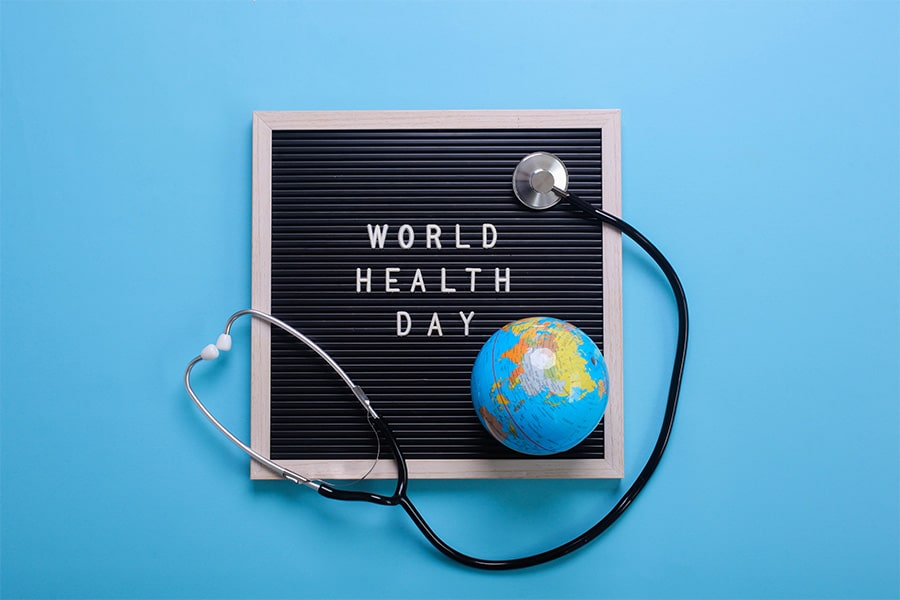The Importance of Sleep on Physical and Mental Health
Introduction
We have all been told that it is important to get a good night’s sleep, but do you know just how important a good nights’ sleep is for health and wellbeing?
We have all been recommended by our friends, family, or a health professional that we need to get a better nights’ sleep to help us recover and feel better. Not only is this true, but I am here to tell you that there are a multitude of other benefits associated with a regular good night’s sleep.
New research is constantly being released, and it is all saying the same thing – how important sleep is to physical and psychological health and wellbeing! Sleep duration and quality have been proven to have a significant impact on physical health, waking cognitive functions such as memory, performance, and cognitive speed, as well as psychological wellbeing, including mood, emotions, stress levels and mental health1. Just imagine waking up and feeling more refreshed and energised for the day as well as boosting so many other avenues of our health!
According to the 2016 Sleep Health Survey, inadequate sleep in either duration or quality occurs in 33-45% of adults2. That is, over one-third of the Australian adult population is not taking advantage of these free health benefits. What is even more alarming is that current trends indicate that nightly sleep duration across all ages is declining, leaving the population susceptible to poorer health outcomes3.
Below, you will find some statistics and hard-hitting truths about the importance of adopting a regular good nights’ sleep into your daily routine. It outlines the physical and psychological benefits of a good nights’ sleep, how much sleep we really need and some strategies that you can implement into your life as early as today to start improving your overall health.
Physical Benefits
There is growing research identifying the association between poor sleep quality, duration, and negative health outcomes. Here are some statistics linking sleep with some of the most prevalent and growing health burdens on today’s population:
- Obesity – studies have shown that sleep duration less than 7 hours per night in adults is associated with around a 10% increase in the probability of obesity, with every additional hour of sleep decreasing this subsequent risk by 30%4.
- Cardiovascular disease – the prevalence of cardiovascular disease is increased by around 30% in adults sleeping less than 6 hours a night, and 19% in those who are sleeping less than 8 hours per night5,6.
- Immune system – a high quality sleep improves the efficiency and overall functioning of our immune defence, improving response to vaccines and decreasing the severity of allergic reactions. Conversely, sleep deprivation and sleep disorders have been shown to interfere with healthy functioning of the immune system, increasing susceptibility to illness and poorer recovery times7.
- Athletic performance and injury risk – there is an increasing body of evidence developing that demonstrates increased sleep quality is associated with improvements in many different components of athletic performance. This includes endurance performance, sprint and anaerobic power, accuracy, reaction time and learning capabilities. Furthermore, athletes who report sleeping less than 8 hours per night are up to 70% more susceptible to sustaining an injury8.
Psychological Benefits
Not only does improved sleep quality boast improvements to our physical health, it also greatly affects our psychological wellbeing. This relates to our moods, emotions, cognitive capacity, and even an association with the development of mental health conditions.
You may have noticed yourself that a poor nights’ sleep has made you feel irritable, drowsy, stressed, and have decreased concentration whilst trying to complete your day. These are only a handful of the consequences associated with short-term sleep deprivation. These alone are likely to cause disruptions to your mood and emotions, which in turn will affect your interactions and relationships with people around you. On top of this, the body’s normal response to different stressors is impaired, significantly increasing the amount of stress that we feel from novel stimulus. What is worrying is that these are only the consequences of short-term sleep deprivation.
Alarmingly, long-term sleep deprivation and the associated changes in mood, emotions, and stress are commonly developing into diagnosis of different mental health conditions, such as depression, anxiety and even Alzheimer’s disease. Although there are a considerable number of factors influencing an individual’s mental health and the consequent development of a disorder, it is important that we are trying to alleviate the number of daily stressors on the body to reduce the likelihood of this occurring. Current research dictates that mental health disorders and sleep patterns have a bi-directional relationship, meaning that both have a significant impact on each other, and can result in a negative cascade. To outline the severity of the problem, some statistics include:
- Depression – adults with insomnia are 5 times more likely to develop depression9
- Anxiety – adults with insomnia are 20 times more likely to develop a panic or anxiety disorder9
- Alzheimer’s disease – sleep disturbances/insomnia are associated with increased risk of cognitive impairment and subsequent Alzheimer’s disease development10
Not only does sleep deprivation affect our mood, emotions, and mental health, sleep quality has a significant impact on our cognitive capabilities. Our ability to concentrate, learn and consolidate memories are all impaired because of sleep deprivation, resulting in educational and work-related performance issues. Research suggests this is due to decreased concentration capabilities affecting our learning efficiency, as well as decreasing the brain’s ability to consolidate new memories.
As you can see, none of the above mentioned sound pleasant.
How Much Sleep?
Now that you know the importance of ensuring a good nights’ sleep, how many hours should you get a night? While the ideal amount of sleep varies between individuals, The National Sleep Foundation guidelines recommends that, every night11:
- Young children aged between 1-5 should get 10-14 hours of sleep
- Children aged between 6-13 should aim to get 9-11 hours of sleep
- Children aged between 14-17 should aim to get 8-10 hours of sleep
- Adults aged 18-64 should get 7-9 hours of sleep
- Adults aged 65+ should get 7-8 hours of sleep
These guidelines act as a rule of thumb, and many influences such as overall health, daily activities, physical exercise, and typical sleep patterns impact the optimal amount of sleep each person requires11.
Strategies to Maximise Sleep
What are some things that you can start doing right now to help improve your sleep?
Research has shown that adopting a lifestyle approach to improving sleep is highly effective. This means improving your exercise habits, implementing a healthy, balanced diet, and decreasing alcohol and cigarette consumption are all highly effective strategies to, not only improve sleep, but improve overall health and wellbeing.
Some simple strategies you can start implementing today that may enhance your sleep quality and duration include12:
- Limit napping through the day,
- Implement a daily exercise regime,
- Go to bed at the same time every night and avoid sleeping in,
- Avoid caffeine or other stimulants up to 8 hours before bedtime,
- Turn off your devices (TV, laptop, phone) at least 30 minutes before bedtime,
- Relax and clear your mind in the late evening,
- Keep your room dark and cool,
- Establish a nightly routine and
- Use a comfortable pillow and appropriate bedding.
By actively endeavouring to improve your nightly sleeping habits and forming a regular routine, sleep quality and duration are likely to improve, helping you reap the benefits outlined above!
Why wait? Start today! If you require further assistance and need further options, speak to your GP or other health professional today.
Author: Daniel Karagiannis, AEP ESSAM
References
-
- Worley, SL. (2018). The Extraordinary Importance of Sleep: The Detrimental Effects of Inadequate Sleep on Health and Public Safety Drive an Explosion of Sleep Research. P T, 43(12), 758-76.
- Adams, R., Appleton, S., Taylor, A., McEvoy, D. & Antic, N. (2016). Report to the Sleep Health Foundation: 2016 Sleep Health Survey of Australian Adults. The University of Adelaide: Adelaide, Australia.
- Matricciani, L., Bin, YS., Lallukka, T., Kronholm, E., Dumuid, D., Paquet, C. & Olds, T. (2017). Past, present, and future: trends in sleep duration and implications for public health. Sleep Health: Journal of the National Sleep Foundation, 3(5): 317-323.
- Beccuti, G. & Pannain, S. (2011). Sleep and obesity. Current Opinion in Clinical Nutrition and Metabolic Care, 14(4): 402-412.
- Yazdanpanah, MH., Homayounfar, R., Khademi, A., Zarei, F., Shahidi, A. & Farjam, M. (2020). Short sleep is associated with higher prevalence and increased predicted risk of cardiovascular diseases in an Iranian population: Fasa PERSIAN Cohort Study. Scientific Reports, 10, 4608.
- Covassin, N. & Singh, P. (2016). Sleep duration and cardiovascular risk: epidemiological and experimental evidence. Sleep Medicine Clinics, 11(1): 81-89.
- Suni, E. (2020). How Sleep Affects Immunity. Sleep Foundation: Sydney, Australia.
- Watson, A. (2017). Sleep and athletic performance. Current Sports Medicine Reports, 16(6): 413-418.
- Neckelmann, D. et al. (2007). Chronic Insomnia as a Risk Factor for Developing Anxiety and Depression. Sleep, 30(7): 873-880.
- Lucey, B. (2020). It’s complicated: the relationship between sleep and Alzheimer’s disease in humans. Neurobiology of Disease, 144, 105031.
- Suni, E. (2020). How Much Sleep Do We Really Need? Sleep Foundation: Sydney, Australia.
- Mawer, R. (2020). 17 Proven Tips to Sleep Better at Night. Healthline: San Francisco, USA.



